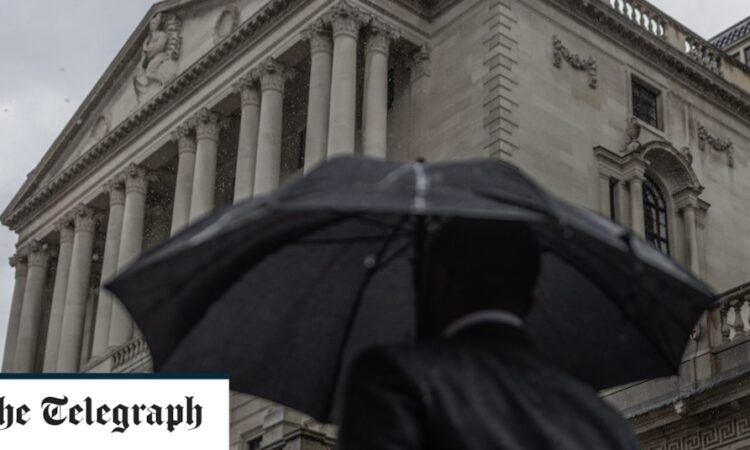
5 things to start your day
1) Asda boss criticises Sunak’s ‘clumsy’ plan to cap food prices | Lord Rose says Government interventions will have unintended consequences for the market
2) British arms maker BAE in talks to build weapons inside Ukraine | Ongoing discussions are the latest sign of Britain’s central role in arming Ukrainian forces
3) Consumers ‘fatigued’ with vegan products, says plant-based burger chief | Numerous brands are pulling back on their meat-free offerings amid weak demand
4) Debt-fuelled empire of Asda’s billionaire owners puts pressure on prices | Issa brothers’ merger brings together mammoth borrowings as well as cost-saving efficiencies
5) AI could be as dangerous as nuclear war, ChatGPT creator warns | Tech executives fear rapid growth of technology poses serious risks to humanity
What happened overnight
Wall Street stocks delivered a mixed performance on Tuesday, as markets weighed the remaining risk of a US debt default following the White House deal with House of Represenatives speaker Kevin McCarthy.
The Dow Jones Industrial Average finished 0.2pc lower at 33,042.78. The broad-based S&P 500 was flat at 4,205.52, hovering near its highest level since last August.
Meanwhile, the tech-rich Nasdaq Composite Index gained 0.3pc to 13,017.43 as excitment over AI pushed the market value of US chipmaker Nvidia past $1 trillion.
Yields on government bonds payable in early June — seen as most at-risk because Treasury Secretary Janet Yellen has said the government will exhaust its cash as soon as June 5 — resumed their decline.
Treasuries due June 6 yielded 5.2pc, down from about 7pc at one point last week.
Asia’s stockmarkets slid toward a second month of losses in a row on Wednesday morning, and even the glittering Nikkei paused, as weak Chinese factory activity fed growing doubts about the post-pandemic recovery in the world’s second biggest economy.
MSCI’s broadest index of Asia-Pacific shares outside Japan fell 1pc in early trade and is down 2.4pc in a month where hopes for robust Chinese rebound have run dry.
Data showed Chinese manufacturing activity contracted faster than expected this month on weakening demand, with the official manufacturing purchasing managers’ index down to 48.2 against a forecast of 49.4.
The yuan fell to a six-month low of 7.1090 per dollar after that and is down more than 2.6pc on the month as indicators from output to industrial profits, retail sales and loan growth have missed forecast and in some cases slumped.
The disappointment has filtered through to other China-sensitive assets. The Australian dollar is sliding towards a fourth consecutive monthly loss and at $0.6492 is barely above last week’s seven-month lows.
Aussie stocks are eying their worst month since February with a 2.4pc drop. A tourism-led rally for Thailand’s baht and stock index has failed to arrive.
Hong Kong’s Hang Seng is down 8pc in May and fell 1.6pc on Friday.
Even stocks in Asia’s brightest market, Japan, took a breather on Wednesday. The benchmark Nikkei fell 0.8pc, though that caps a 7.7pc monthly gain that’s driven the index above 31,000 to its highest levels in more than 30 years.






